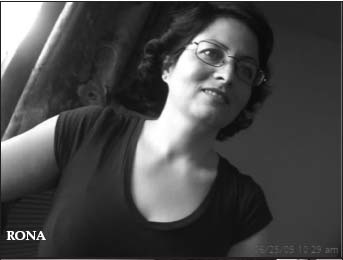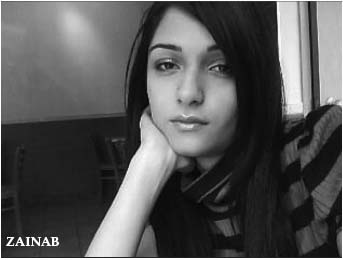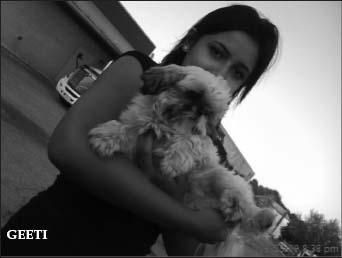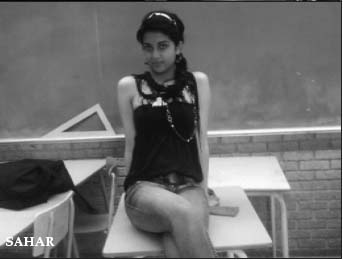Honour on Trial







Introduction
FOR more than three years, as a reporter with the
Kingston Whig-Standard
, I covered the murders of Zainab, Sahar, and Geeti Shafia, and Rona Amir Mohammad.
The three-month trial that opened in Kingston on Oct. 19, 2011, attracted, for Kingston, unprecedented national and international media attention. Each day of the trial, TV network satellite trucks were lined up along the front lawn of the Frontenac County Court House, beaming their reports to the world. The media circus had come to town, bringing with it an urgency and intensity unfamiliar to the city.
The media is a ravenous beast and, in the Internet age, never sleeps. It was not unusual for me to start the day by giving a radio report from home, a telephone update for television somewhere along the road to the courthouse, then spend the morning listening to testimony, typing out a lunchtime hit for the Web, hearing more testimony in the afternoon, and then writing a 1,500-word story for the next day's edition.
The 12 men and women of the jury bore a heavy burden. The Crown did not have to establish the how and the where, nor even the why, to get a first-degree murder conviction. It was not necessary to prove which of the three accused dealt the final blow. The Crown had to prove only that they played a premeditated role in causing the deaths for all three to be found guilty.
Then there was the second court, that of popular opinion. Almost from the outset, the 150-seat courtroom was full every day until, by the end of the three months, people were lined up, waiting to get in to witness the morning and afternoon sittings. Every statement and piece of evidence was scrutinized. The foyer outside the courtroom was abuzz as Kingstonians mingled with journalists and discussed what they had heard, or speculated about what the next witness might reveal. While the sensational details of the case drew the public in, there was a real desire for justice to be served.
Throughout the trial, I was often asked how I dealt emotionally with the evidence. Forty-eight witnesses would appear over the course of the three months. With relentless news deadlines, there was little time for self-analysis. As journalists, we have to respect the legal process, particularly the presumption of innocence. We follow the story line like everyone else. What became most disturbing was watching the mountain of evidence pile up against the three accused as they sat stone-faced in the prisoners' box, showing little if any emotion, steadfastly denying responsibility for the deaths.
As the Crown played seemingly endless hours of interrogation videos with the accused, the performances were at times mesmerizing, almost dreamlike. Reality and unreality were often interwoven to produce a confusing narrative. In the absence of eyewitnesses, the three accused would tell police investigators and the court conflicting stories that defied logic. But in the end, the strange actions and contradictory statements of the accused proved their undoing.
We were all witnesses to a deeply sad story. But it was a story filtered through translations, video clips, and witnesses who expressed how little they actually knew about what was happening to the women in the Shafia household. With the murders, it became obvious that a new wave of immigration had brought with it challenges for young women wanting to fit into Canadian culture.
Since sitting down to write a book about the Kingston Mills murders and poring over the thousands of pages of evidence and transcripts, I've felt as if I were waking from some terrible dream. It was difficult at the time to believe that the three people meekly led into the courtroom each day in handcuffs, heads bowed and faces expressionless, could be capable of something as heinous as the crimes they were accused of. For all of us connected to this tragedy, the story of how these four women died will continue to haunt us.
Paul Schliesmann
The drive homeâ¦
MONDAY, June 29, 2009, had been a warm 26ºC in Niagara Falls, dropping a few degrees as evening approached. For a family about to embark on a seven-hour drive home to Montreal, 6:45 pm seemed like a late checkout time. The motel surveillance camera recorded it all, including the time. The young man paying the bill at the counter of the Days Inn in Niagara Falls was Hamed Shafia, conducting the transaction in English; his father, Mohammad Shafia, stood beside him, watching attentively.
The Afghan family of ten â three adults and seven children â was about to begin a long journey late into a southern Ontario summer evening. According to Mohammad Shafia, it was the decision of the whole family to leave so late in the day. They were travelling in two vehicles. Hamed and Mohammad were in the front seat of a silver Lexus SUV, Hamed at the wheel. In the back seat of the spacious luxury vehicle were two younger sisters and a younger brother.
The second vehicle was a black Nissan Sentra sedan. The mother, Tooba Mohammad Yahya, was the only licensed driver in the car. Beside her in the front passenger seat was her eldest daughter, Zainab. The 19-year-old was particularly anxious to return to Montreal. Zainab was about to become engaged to marry a distant cousin, a young man named Hussain Hyderi. She had spoken with him by phone that day and they planned on making their relationship official in just two days' time, on July 1. In the back seat of the Nissan sat two more of Tooba's daughters, Sahar, 17, Geeti, 13, and a woman named Rona Amir Mohammad, known to the Shafia children as "Mother Rona."
The 2005 Nissan had 113,130 km on it when Hamed and Mohammad had purchased it only the day before the family left on their vacation. A spacious Pontiac Montana minivan sat in the driveway of the family home at 8644 rue Bonnivet, in the Montreal suburb of St. Leonard. It was a tight fit for the passengers in the Nissan, especially for Rona, Sahar, and Geeti in the back seat. But no one cared. After the turmoil that had recently engulfed the family, the trip to Niagara Falls had come as a welcome and unexpected diversion, their worries left behind if only for a few days.
The Shafia family holiday had been an unusual excursion from the outset. A week earlier, on the morning of Tuesday, June 23, 2009, they'd headed north along Highway 117 toward the village of Grand-Remous on the Gatineau River. It wasn't their ultimate destination â far from it. The Shafias planned to drive all the way to Vancouver, covering a distance of about 5,000 km, remaining in Canada for the entire trip. That first day they travelled just 250 km to the town of Mont-Laurier and stayed there overnight. The next day the travel plans were suddenly and radically altered. The new destination would be Niagara Falls, the same vacation spot they had visited the previous year.
Before leaving Mont-Laurier, the family stopped at a McDonald's restaurant. Mohammad and Hamed went for a 15-minute walk. Father and son were close confidantes. Mohammad spent most of his time abroad on business trips, mainly in Dubai. He was a successful importer and had recently gotten into the lucrative business of exporting used cars to the Middle East. Hamed was getting more and more involved in the car business, conducting online car searches. He also helped manage the shopping plaza they'd bought in Montreal, collecting rent and arranging for work by tradespeople. At the beginning of June, Hamed had joined his father in Dubai, spending two weeks there. When they returned to Montreal, they informed the family of their plans for the cross-country trip.
Climbing back into the two vehicles at Mont-Laurier, the family now headed southwest, crossing into Ontario at Ottawa, then on to Brockville where they picked up Highway 401, the main autoroute across Ontario. By now it was evening and they were approaching Kingston, where they decided to take a bathroom break. The message travelled between the cars via Sahar's cellphone in the Nissan and Hamed's in the Lexus. The two vehicles turned off at the Highway 15 exit, took a right turn going north for a short distance, then turned left onto Kingston Mills Road.
They stopped at the Kingston Mills lockstation, the southern terminus of the historic Rideau Canal. The seven kids stretched their legs and wandered around the grounds as boats slowly made their way through the series of locks. They used the bathrooms located in the Anglin Centre next to the picturesque turning basin. Mohammad remained in the parking lot of the lockstation. The Shafias stayed for about a half hour to 45 minutes.